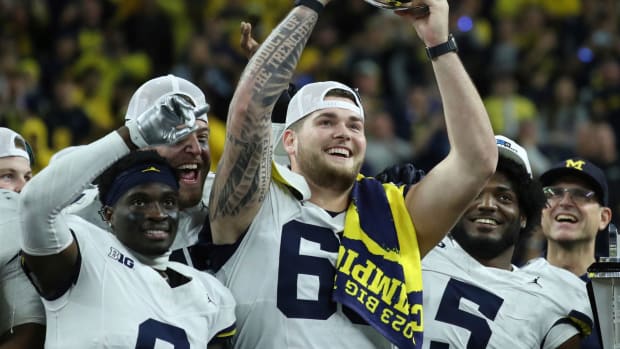Coronavirus vs. College Football: ‘We’re All Effed’
Across the country, the COVID-19 pandemic has administrators grappling with an unprecedented set of challenges —including the realization that life in college athletics may be, at best, temporarily and significantly altered. The impacts of the novel coronavirus to its cash cow, football, could bring a swift, and potentially permanent, end to the golden age of the industry. Just 142 days before its scheduled kickoff, the season’s existence is clouded with uncertainty as a plague hampers the nation, with billions of TV dollars and ticket revenues in jeopardy of disappearing.
Industry executives are already creating contingency plans for a nuclear fall of no football. At Clemson, for instance, Dan Radakovich has commissioned a handful of associates to investigate the what-ifs, calling it a disaster-preparedness committee. “I don’t know that we’ve named it,” he says, “because I don’t have an acronym for doom.”
For years, top-level programs have bathed in cash. They’ve erected lavish facilities, signed coaches to multimillion-dollar contracts and massively increased athletic staff sizes. Revenues have never been greater, giving is at an all-time high and, while attendance has shown a steady decline, premium seating and TV money are taking off. But the gravy train has hit a snag. If it leads to a major downturn in the college football economy, then what? “We’re all effed,” says one Power 5 athletic director who wished to remain anonymous. “There’s no other way to look at this, is there?”
A total or partial loss of the sport could send some athletic departments so deep into the red that one administrator predicted even Power 5 football programs shuttering. But the absence of football is only one piece. The long-term and severe financial impacts from an economic recession could not only reform forever how departments operate but also could spell sweeping changes to the landscape of college athletics—from the formation of a super division to a new wave of conference realignment, from money-saving travel modifications to football scheduling alterations, from discontinued sports to thousands of lost jobs.
CLICK HERE for all of this story from SI.com’s Ross Dellenger and Pat Forde.




